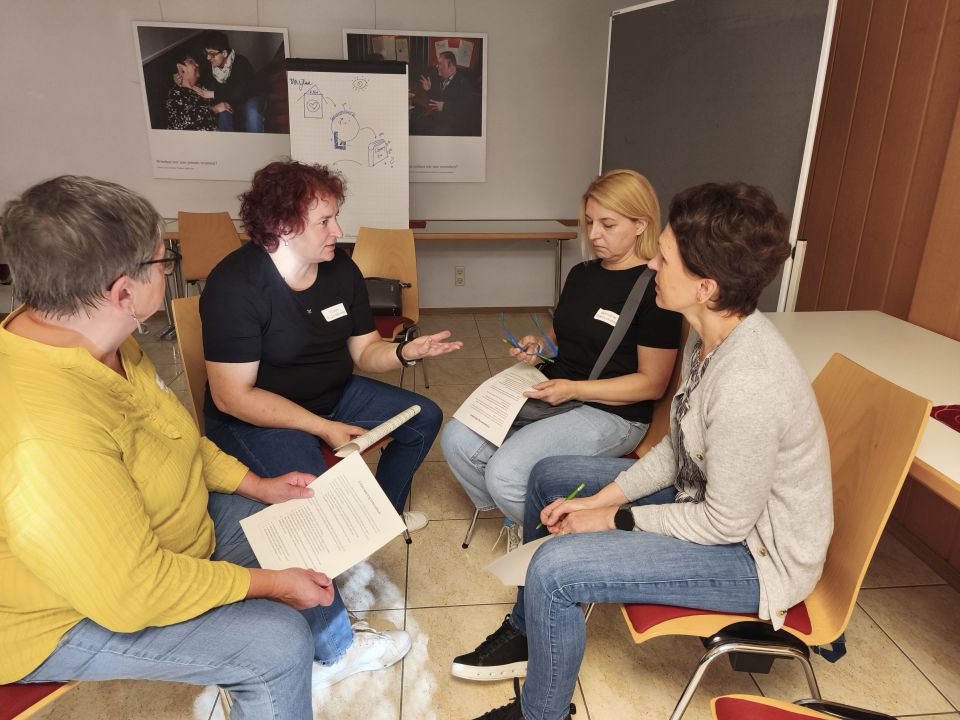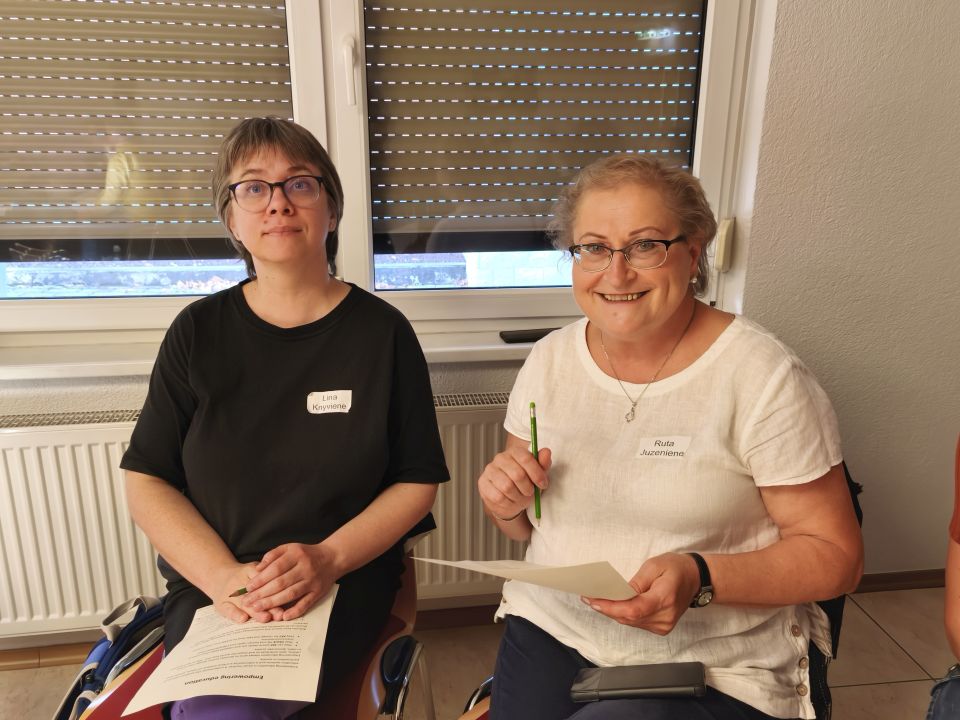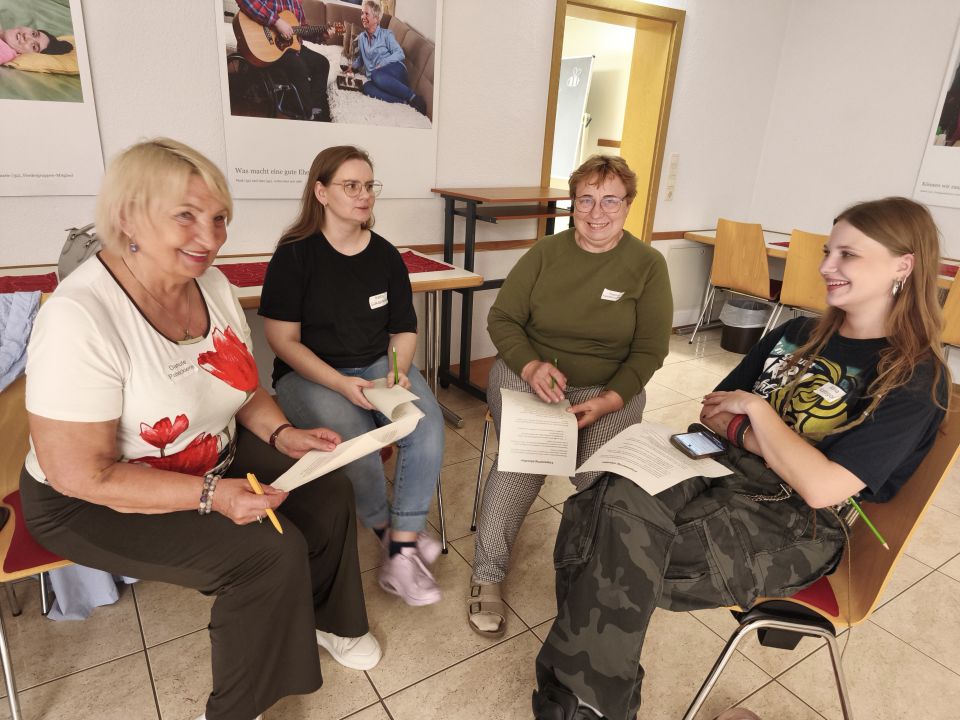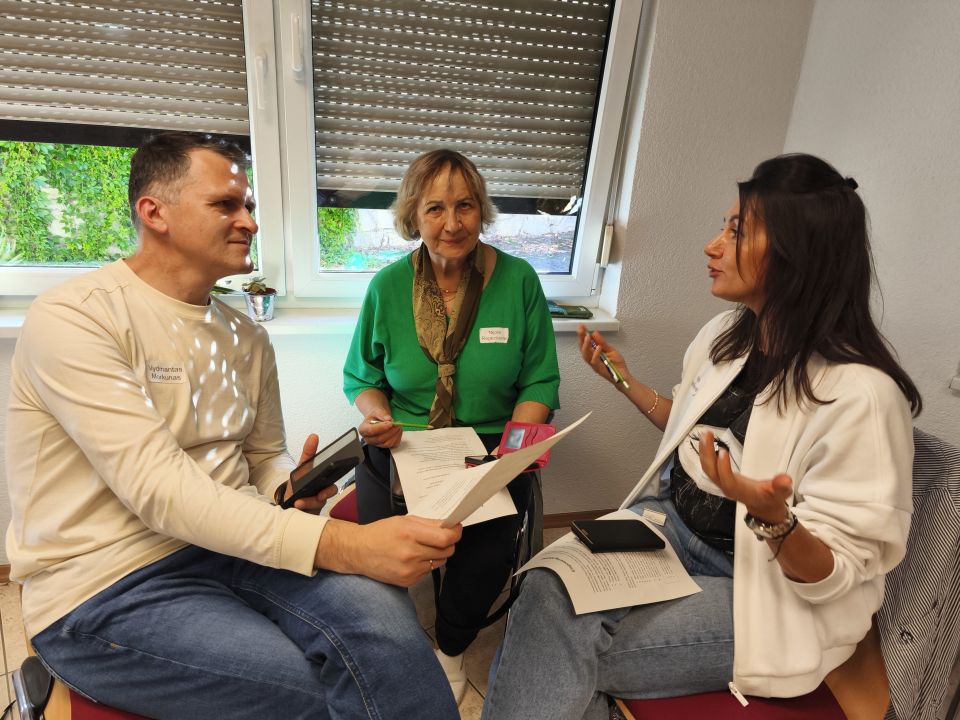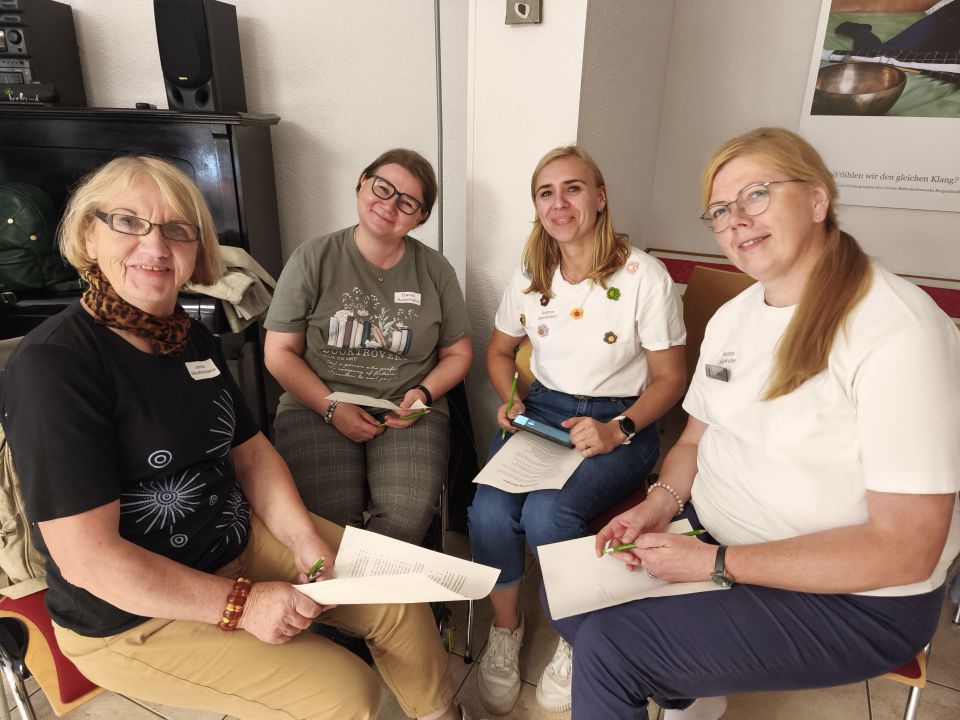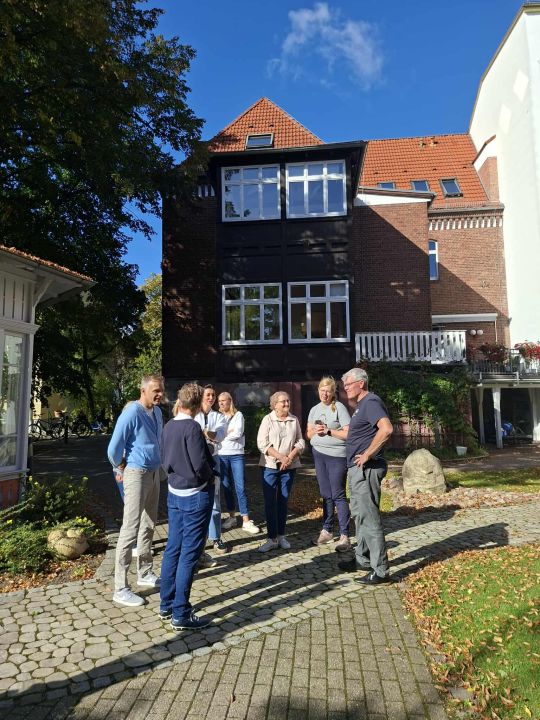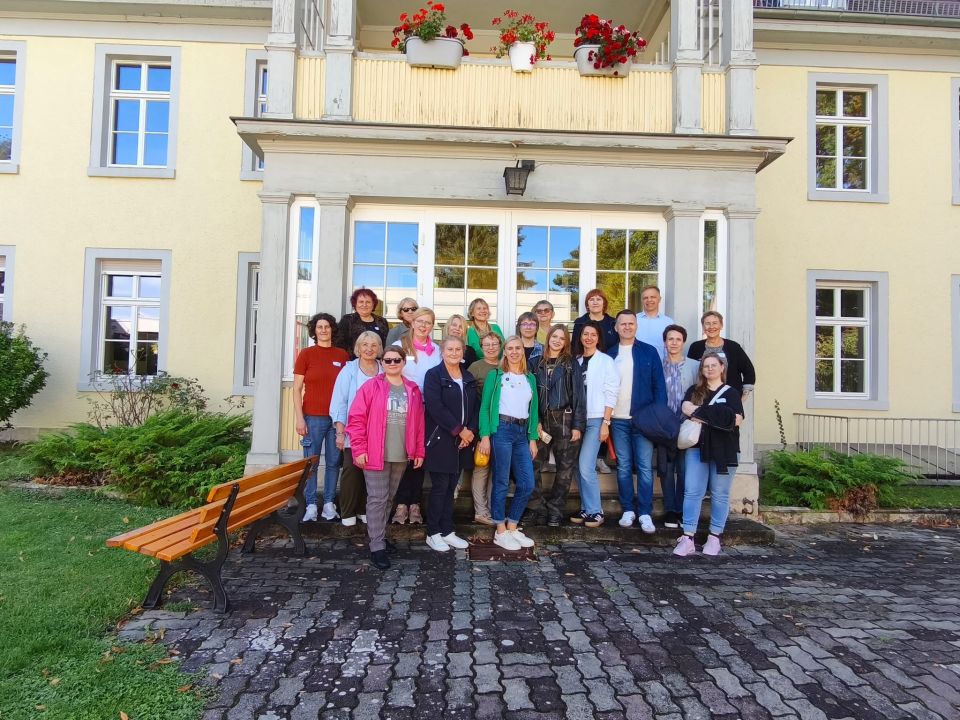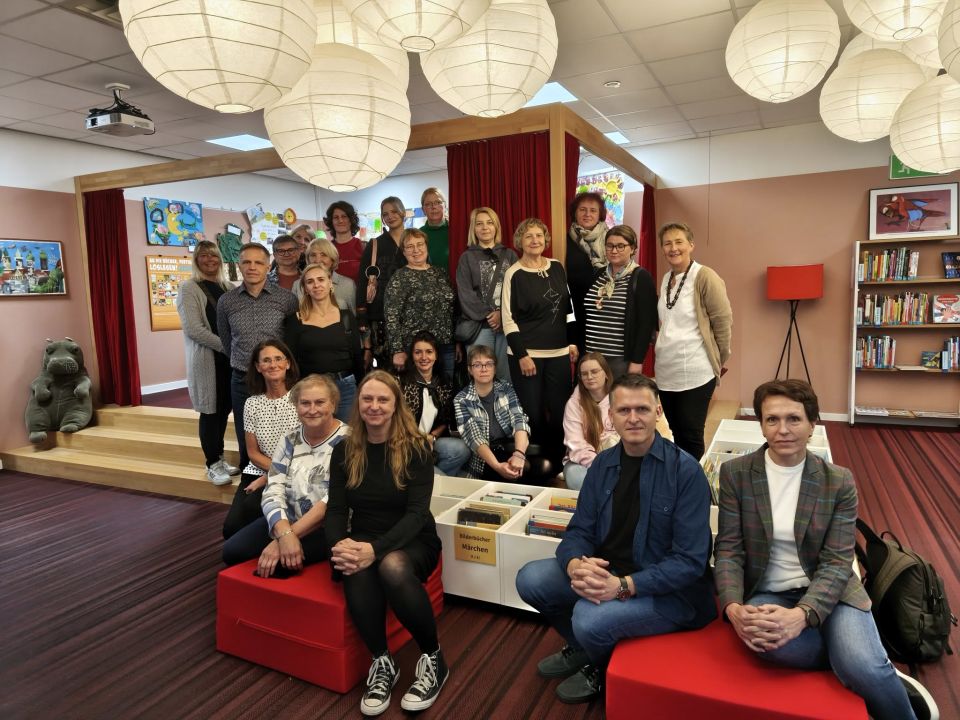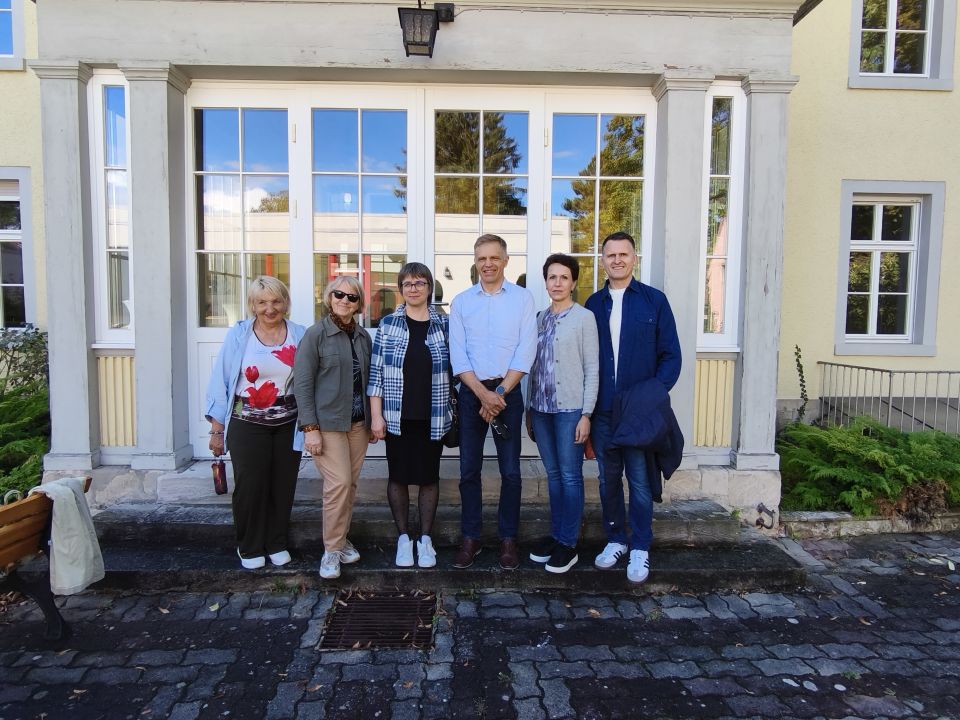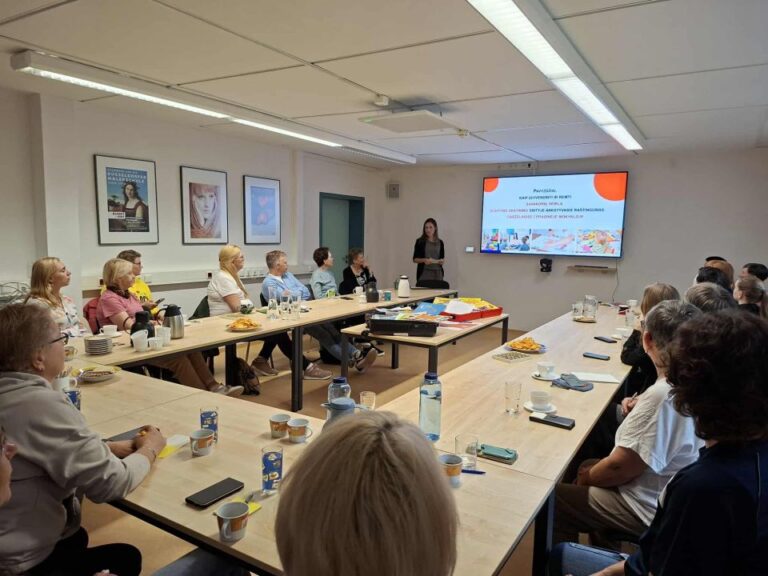As part of the Erasmus+ programme accreditation project in the field of adult education, the Panevėžys County Gabrielė Petkevičaitė-Bitė Public Library, together with partners –12 municipal public libraries in Panevėžys region – organized a job shadowing visit to the Konrad Martin Haus Adult Education Centre in Naumburg, Germany, from the 15th to the 18th of September. A group of library professionals and volunteers from the Panevėžys region took part in the visit.
The purpose of the visit was to become acquainted with the adult education philosophy and activities of Konrad Martin Haus, to explore successful examples of non-formal adult education and volunteering, and to gain insights into how inclusive learning and community-building ideas are implemented in Germany.
The educational and social mission of Konrad Martin Haus is to promote lifelong learning, develop social and democratic competences, and create an inclusive and diverse community in which everyone can actively participate and grow. The centre provides educational services such as seminars, training, and consultations, and acts as a unifying institution connecting various organisations in the Naumburg region to support their educational initiatives.
During the visit, Konrad Martin Haus presented a range of regional adult education activities and projects, which were discussed as outstanding success stories and examples of good practice. Participants were introduced to educational initiatives carried out by institutions such as Seniorenbüro, Naumburg Public Library, Salztorschule, and Bildungsbüro Naumburg.
The activities of Seniorenbüro were presented as an inspiring example – volunteer-led leisure groups for older adults, including singing, handicrafts, yoga, memory training, English language and self-help groups. These initiatives strengthen social ties and reduce isolation among seniors.
The example of Naumburg Public Library illustrated how a library can become an active space for adult learning: it hosts reading clubs, literary discussions, lectures on social topics, a games café for community gatherings, as well as creative and musical events.
Participants also learned about the community initiative at Salztorschule Naumburg, where volunteers helped to renovate the school library. The project also involves Lesepaten (reading mentors) who assist children in developing reading and language skills and encourage a love for books.
Finally, the activities of Bildungsbüro Naumburg were introduced – this institution coordinates educational initiatives across the region, brings together organisations, implements local government projects, promotes lifelong learning for all age groups, and shares good practices within the community.
All these examples were presented and discussed at Konrad Martin Haus as valuable models for developing non-formal adult education and volunteering.
The visit provided the participants – both librarians and volunteers – with valuable experience, knowledge, and inspiration. They observed how different organisations can be united by a common educational mission, and how diverse activities contribute to community strengthening, lifelong learning, and social inclusion.
For most of the participants, this qualification visit was their first-ever Erasmus+ experience. Reflecting on it, they emphasized that they felt like full-fledged members of the Erasmus+ community, had the opportunity to discuss European values, inclusion, and solidarity, and were pleased to contribute to sustainability goals, as the group chose to travel to Naumburg by bus, thereby reducing their environmental impact.
In preparation for the visit, the Panevėžys County Gabrielė Petkevičaitė-Bitė Public Library organized online English conversation sessions over the course of two months. These sessions helped participants refresh and strengthen their speaking skills to communicate more confidently and actively during the mobility experience.
This visit became not only an opportunity for professional development but also an experience of personal growth. It strengthened the sense of community among participants, fostered intercultural dialogue, and provided new ideas on how to apply Erasmus+ values and experiences to the development of non-formal adult education in the Panevėžys region.
Photos by the participants of the visit
Virginija Švedienė,
Coordinator of Adult Education Activities

